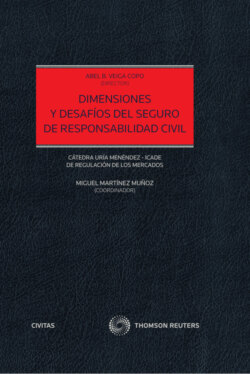Читать книгу Dimensiones y desafíos del seguro de responsabilidad civil - Abel B. Veiga Copo - Страница 107
На сайте Литреса книга снята с продажи.
3. THE MAY 2017 ALI ANNUAL MEETING AND SUBSEQUENT DEVELOPMENTS
ОглавлениеPrior to the 2017 Annual Meeting, ALI leadership, in response to insurer criticisms of the RLLI, issued a decision to defer final consideration and any formal approval of the RLLI until the 2018 Annual Meeting. Nonetheless, at the 2017 Annual Meeting insurer motions were debated and rather strongly rejected by the membership. Motions by insurer counsel regarding the duty to defend were rejected by a wide margin63 as was a motion by insurer counsel to remove a Comment and accompanying Reporters argued to §24 regarding an insurer’s duty to make reasonable settlement decisoins64. On the policyholder side, a motion was made to have 2017 RLLI §44 amended to eliminate allocation of coverage responsibility in long-tail torts consecutively triggering policy years to only years in which insurance was available65. The Reporters took this motion and other as yet undebated insurer motions66 under advisement.
Thus, by the close of the discussion session at the May 2017 Annual Meeting, the RLLI had been reviewed and discussed for the fifth time. Membership approved the RLLI subject to editorial revision by the Reporters in light of commentary and review of the RLLI again at the May 2018 Annual Meeting. As a consequence, the RLLI could be considered as approved but not yet finalized ALI work product subject to change during the ensuing year or at the next meeting prior to formal final approval.
In the wake of the 2017 Annual Meeting, the RLLI Reporters issued a subsequent (August 2017) draft with editorial changes discussed at a September 2017 Advisers/MCG Meeting. There were then further revisions, resulting in a December 2017 RLLI Draft that was also accompanied by alternative language concerning the contract construction provisions of the RLLI. Then came the January 2018 ALI Council meeting, which resulted in a directive by the Council to adopt the alternative language more deferential to policy text and to revise pre-2017 RLLI §12 to provide for reduced insurer liability for failings of defense counsel. These and other revisions were incorporated into the Proposed Final Draft of April 2018 submitted to the ALI Membership in May 2018.
Undeterred by the lukewarm to negative reception given insurer motions at the Annual Meeting, NCOIL [the pro-insurer group of legislators)67 immediately issued a press release after the Meeting taking the credit for the Institute’s decision to defer a final vote on the RLLI to May 201868. Other elements of the insurance industry put the same spin on developments, as reflected in trade press coverage in the wake of the Annual Meeting69. Like any good propaganda campaign, this public relations effort appeared to have considerable potential for “poisoning the well” by convincing insurance professionals that the RLLI is highly problematic70. NCOIL and others affiliated with insurers took the position that they had achieved a great victory in avoiding final approval of the Restatement through their many attacks on it in the weeks and months before the May 2017 Annual Meeting71. And there certainly were attacks on the RLLI both through the official channels of commentary and motions as well as in the trade press.
As the May 2018 Annual Meeting approached, ALI Leadership seems solidly behind the project. So, too, did most ALI members without ties to the insurance industry. Policyholder counsel and consumer groups still appeared to support the RLLI, but with reduced enthusiasm in light of the most recent revisions tending to favor insurers. As previously discussed, the May 2017-April 2018 time period saw significant movement toward insurers regarding several Sections of the RLLI, which were revised to be more favorable to insurers). The Reporters and the Institute had during the June 2017-April 2018 period attempted to address insurer concerns found meritorious. But insurers –despite their victories of the past two years– continued to lobby for changes and even to scuttle the project.
